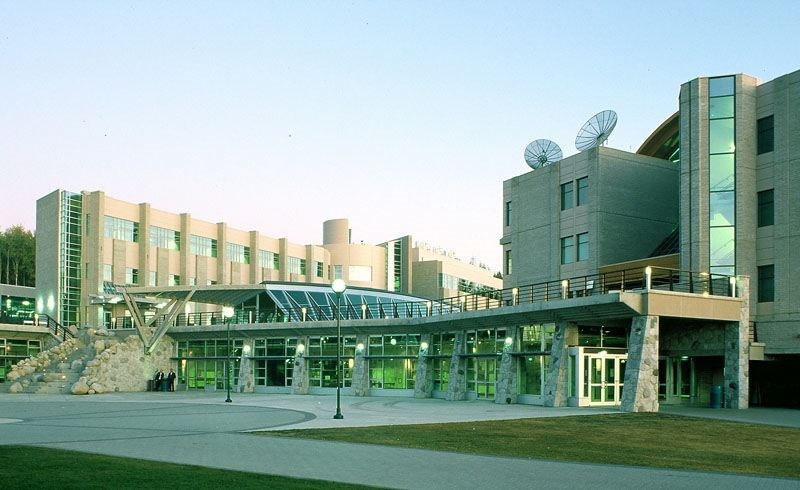Welcome to Prince George, Daniel Weeks.
Just as the new president of UNBC settles in to celebrate the university's 25th anniversary, he's facing an uprising from angry professors wantiing a big pay raise.
The faculty unionized in April and took a strike vote last month, with 85 per cent of the members votiing in favour.
The profs are playing nice so far, agreeing not to strike during the Canada Winter Games. But if Weeks and the Board of Governors don't come through by Easter, expect the faculty to walk out the week before classes wrap up and exams are scheduled for the winter semester, which happens to coincide closely with the 90-day strike window from January's vote.
Hopefully the three days of mediated talks starting today will bring some progress for the big stuff still on the table - wages, benefits, tenure, promotions and the process to eliminate programs currently offered by the school.
The biggest thorn in the side of the 343 full and part-time faculty members is what their counterparts at similar-sized universities across Canada take home.
The last faculty agreement posted on the UNBC website, covering July 1, 2010 to June 30, 2012, has assistant (junior) professors making between $61,000 and $78,000, associate (mid-level) professors making $74,000 to $97,500 and full (senior) professors starting at $90,000 with no limit set on what the university could pay them but the average was in the $105,500 range.
Those sound like fine wages, until one factors in the eight to 12 years of post-secondary education needed to earn a Ph.D, usually followed by a few years as a lecturer or a senior lab instructor ($52,000 to $75,000 at UNBC from 2010 to 2012) before being appointed as a professor.
Those wages are chump change compared to what their countparts make. According to a Macleans article published in 2012 that assessed what the faculty at 59 Canadian universities were paid in 2010-11, UNBC was third from the bottom, ahead of only Cape Breton and Trinity Western.
Sure, UNBC is a small university but it consistently ranks near the top among the smaller, primarily undergraduate universities in Canada in the annual Maclean's rankings but it pays its professors well below comparably-sized universities across Canada.
Except in B.C.
In the Maclean's pay rankings, UNBC and its six cousins that make up the "small seven" of B.C. universities, outside of UBC, Simon Fraser and the University of Victoria, all reside in the bottom 10 of lowest-paid faculity in the Maclean's survey. B.C. in general doesn't pay its academics as well as many other provinces, with UBC 19th, Simon Fraser 22nd, and UVic at 28th on the Maclean's list.
Rob Van Adrichem, UNBC's vice-president of external relations, said in 2012 that UNBC's numbers aren't as bad as they look because only one-third of the school's faculty are full professors, less than other universities, therefore skewing the salary comparisons.
That drew an angry response from 10 UNBC professors, who pointed out in a letter to the editor that not only does UNBC rank at the bottom when comparing salaries by rank and seniority, the longer that professors stay at UNBC, the more they fall behind in pay compared to their colleagues elsewhere.
UNBC is in a difficult position.
It surely would love to pay its professors - who are excellent ambassadors for the school and for Northern B.C. at conferences around the world - more money but is hemmed in by the provincial government on the level of funding it receives and the amount it can increase tuition each year. Furthermore, enrolment levels at UNBC have been flat for 10 years with no signs of improvement. If anything, the population stats in Prince George and Northern B.C. suggest UNBC could be facing a dramatic and long-term decline in enrolment.
That's probably why the academics want to negotiate "program redundancy" or how UNBC would phase out less popular programs to save money. They know President Weeks is going to have to make some tough choices in the near future and they want a seat at the table regarding those choices and a say over compensation for professors handed the pink slip.
UNBC's quarter-century anniversary celebrations could be marred by a bitter labour dispute, which may be just the first round of even tougher fights ahead.



